|
Sitting Front Row Stage Right It’s the seat furthest left in the front row. Right next to the pillar. That one. Sitting the in front row House Left makes for some remarkable proximity. It’s one thing to see an actor playing multiple roles as the only actor in a show. It’s another thing entirely to see and actor playing multiple roles as the only actor in a show in a studio theatre space. Sitting the front row House Left for Theatre Gigante’s I am My Own Wife takes one-person small stage studio theatre experience to a whole other level. Michael Stebbins flits through multiple characters in a very delicate story and you’re right there for some really vulnerable moments between actor and character...closer than most people get in casual conversation. It’s not for everybody, but the intensity of human connection from that front row all the way on the left...amazing. Stebbins plays a character known to Mahlsdorf who has been put incarcerated. Some of that character’s most intimate moments alone happen quite close to the front row stage right. Sit in that seat in that moment and lighting designer Leroy Stoner is shooting some incredibly harsh light directly at you, but it amplifies the intensity of the imprisonment. It’s blindingly overwhelming, causing heavy shadows . The contours of human emotion highlight Stebbins’ face as all around is black and shades of shadow in Stoner’s stage lights. It’s one actor, one character light, shadow and a tragic story. It’s a truly breathtaking moment. And then things fade-in and the story continues. Keeping All of the Characters Distinct I am My Own Wife has one actor playing something like four primary roles with a host of supporting characters. It’s just one guy up there telling a story involving a man who lived through two oppressive regimes in one of the most tumultuous times in a nation’s history that is framed through a historian’s lens as a central protagonist tries to learn about the life of a truly remarkable woman. So there’s a lot going on here. And it’s just one guy. It’s a challenge for any actor, particularly in drama. It’s a bit easier in comedy. Comedy can be amplified with one actor playing multiple characters. It’s inherently funny to watch one actor play multiple different personas. It’s a comic device that does wonders for quick change shows like Dracula vs. the Nazis or The Mystery of Irma Vep. There’s a real challenge to doing it in drama in a way that doesn’t detract from the drama. Stebbins manages this by holding on to the inheent humanity of the characters. There’s a lot of variation in personality between the characters, but Stebbins does a really good job of holding on to the central mood of each scene even when playing multiple characters. It’s a very delicate balance and Stebbins manages it quite well. Theatre Gigante’s production of I Am My Own Wife runs through Oct. 7 at Kenilworth 508 Theatre on 1925 E. Kenilworth Pl. For ticket reservations and more, visit Theatre Gigante online. My comprehensive review of the show runs in the next print edition of The Shepherd-Express.
0 Comments
Playwright/Theatre Guy Aaron Kopec and the Alchemist Theatre have been doing original Halloween shows for several years. This October Kopec and company return to the stage for another Halloween show. Pepper’s Ghost promises a blend of humor, horror and fog. Actors come and go from an stage, but the Alchemist has a really solid community of actors who really love working the cozy space on South Kinnickinnic. Once again, another Alchemist Halloween show features two talented actresses who have been doing these shows for about ten years now: Sammi Kaufman and Liz Whitford. In honor of Pepper’s Ghost, The Small Stage presents profiles on the two Alchemist Scream Queens.  Name: Sammi Kaufman (or Sammich Dittloff, depending on when you ask Aaron) Height: 4'11" Number of Alchemist Halloween Shows: My 7th if you count only Halloween, but my 10th if you include "Year of Fear" shows. Number of Stage Deaths: In some of the shows, I was already technically dead (or undead in some cases). I think I've only had 3 stage deaths. I'm much more likely to end up alive at the end of the show than Liz is. She's got to have at least 10 deaths. Most notable experience dying (or living) onstage: In the first H.H. Holmes, Nate Press slammed my head against a door until I died, so that's definitely the most dramatic death to date. Who (or what) do you play in PEPPER'S GHOST?: I play Jane, the sister to Liz's character. Jane is really into improv and she breaks into little skits and songs all the time. Basically, the type of actor you wouldn't want to be around for too long. Drink of choice: When it gets colder, I'm all about Old Fashioneds. What scares you?: Let's just say I watched IT with my eyes half-closed. Any recurring nightmares?: I used to have one about running away from someone with a really twisted up face. Favorite moment onstage not spent dying (or dead) in an Alchemist Halloween Show: The second Dracula started out by being unintentionally hilarious, then we found all the funny parts in it and made it a riot. Although I wasn't on stage for some of the funniest parts, I laughed every day we did that show. Favorite role in an Alchemist Halloween Show prior to PEPPER: Being Sarah in Suicide Sleep was the most fun I've ever had in a role. I loved working on the magic tricks, and her story was so good! Plus, who doesn't want to be a Manic Pixie Dream Girl at least once? Strangest Experience at the Alchemist Theatre: A lot of people say the Alchemist is haunted, and I've seen a couple weird things that make me believe it, too. One time, I saw popcorn fly across the room and land between me and Erica Case. There was nobody else in the lounge at the time. Why do you think people should see the show: Pepper's Ghost is everything you want an Alchemist show to be: Funny, scary, poignant...fog-filled. You have to come to force Aaron to do more Halloween shows, because he obviously caves to peer pressure. 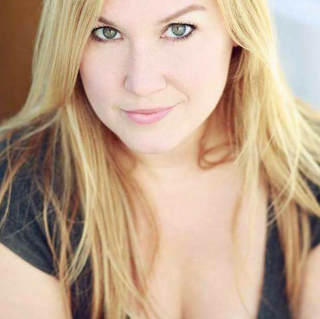 Name: Liz Whitford Height: 4'11" (yes, really) Number of Alchemist Halloween Shows: 12 (Including Pepper’s Ghost) Number of Stage Deaths: 14 (I survived a 2 plays, but was killed multiple times in others haha!) Most notable experience dying (or living) onstage: First Dracula when bit to death… flash paper is supposed to ignite along the coffin I die on top of but closing night it was like a fireball in my face. Apparently Aaron had some extra flash paper to use up LOL! I still have my eyebrows. Who (or what) do you play in PEPPER'S GHOST?: I play Alexandreina Wayierd. She is a know-it-all season subscriber, fan, and financial supporter of the theater. Drink of choice: Wine - Sauvignon Blanc (but I am pregnant at the moment so unfortunately it is currently sparkling water, lame) What scares you?: All horror films! I only like horror shows when I am in them because I know it’s not “real!” Any recurring nightmares?: No, but had a living nightmare while in Dracula. A bat got into my apartment and I woke up in the middle of the night and saw him hanging on my bedroom ceiling staring at me. Oddly similar to Bram Stoker's Dracula visiting Lucy as a bat (yes, I was playing Lucy at the time). Favorite moment onstage not spent dying (0r dead) in an Alchemist Halloween Show: I had a very tender/creepy moment as Claire in the first H.H. Holmes when I tell my baby that we are going to hide away in the countryside “like little field mice” so we aren’t murdered by my husband. Ahh, so sweet...maybe I can recreate this scene with my baby. Favorite role in an Alchemist Halloween Show prior to PEPPER: Margaruite in Faust, she had so many different dimensions and I loved the experience of having the audience roam among the actors and scenes. Strangest Experience at the Alchemist Theatre: I was talking to Erica [Case] behind the bar and a small knife flew off the counter into the sink…no one was near the knife at all. Haunted…perhaps. Why do you think people should see the show: It is funny, fun, suspenseful, scary and an overall good time! Plus, I may or may not die…clearly have the practice ;) The Alchemist Theatre’s horror show Pepper’s Ghost runs Oct, 6 - 28 at the Alchemist’s space on 2569 S. Kinnickinnic Ave. For ticket reservations, visit Alchemist Online.
Charlotte Von Mahlsdorf had quite a life. The truly remarkable woman started out life as a boy whose father forced him to join the Hitler Youth in 1942. Things got ugly. There was a gun, a rolling pin and a patricide. Things got more than a little complicated from there. In 1960, she opened a museum in Germany. By 1970 the museum had become a social hub for the gay community in East Berlin. She has since become the topic for a very interesting one-person drama called I AM MY OWN WIFE. This month actor Michael Stebbins has the opportunity to play Charlotte Von Mahlsdorf again. Having played her in an intimate studio theatre environment in Maryland not too long ago, he returns to her once more in a production that opens this week. Stebbins answered a few questions about his experience with the show for The Small Stage. This is not the first time you’ve played Charlotte von Mahlsdorf in I AM MY OWN WIFE. What’s the appeal in returning to the role for Theatre Gigante this year? I think the appeal is two-fold. One is the opportunity to be working with Theatre Gigante again [I first acted Theatre Gigante is 2014’s MY DEAR OTHELLO, followed by WOYZEK, BEAUTIFUL AND POINTLESS – works by Frank O’Hara, QUORUM – a premiere by Gigante’s Mark Anderson, and HOLIDAYS ON ICE – by David Sedaris]. Two is the opportunity to be directed by Isabelle Kralj. AND, also, having the opportunity to share this beautifully written play with Theatre Gigante audiences. Okay, I guess that was three-fold. What has your experience been like working on the show for Gigante? What input has director Isabelle Kralj had on a show that you’ve already performed elsewhere? Might it not be easy to fall into a posture where you’re more familiar with the character than you are the director and therefore less motivated to listen? When a production finishes its run, the lines go completely out of my head [as well as staging]. You know those people who can recite lines from past productions or friends who can spout full scenes from movies? I am not one of those people. When it’s over, it’s over, and most everything goes out of my head, and I move forward. So, in terms of coming back to I AM MY OWN WIFE, I feel like we have a pretty clean slate from which to start . Isabelle and Mark [Theatre Gigante] suggested having I AM MY OWN WIFE as part of their 30th anniversary season and asked me if I would like to revisit the role[s]. Working with Theatre Gigante, and their form of “hybrid theatre” – as they call it – has been very interesting. Theatre Gigante very seldom does a “straight play.” I believe Isabelle said that over the course of Gigante’s history, they have not produced more than five plays – already published and being performed in the theatre world. Theatre Gigante felt that, as a “straight play,” I AM MY OWN WIFE fell very much into their world – a non-linear and unique way to tell a story. And, because there is no rulebook as how to have one person morph into so many characters, this opens up a world of possibilities. And, as a director, Isabelle Kralj thrives on working in a “world of possibilities” way. Isabelle’s approach to a script – and how to bring those words from the page to the stage – is very unique. With her upbringing and with many of her professional years having been devoted to dance, she is pretty amazing with approaching a moment or a gesture. And, by the time the show is over, you may have forgotten the name of a character that appears and disappears – because there are quite a number - but you will most likely recall a gesture that you identify with that character. And, in some key moments, when it might seem logical to play out a scene to its fullest physical potential, Isabelle will take a very different approach – so that the most physical of scenes is staged in [almost] stillness. Isabelle is also a wonderful sculptor and molder of movement, so she is very particular when it comes to how the audience sees – say – three characters having a conversation. And, in the end, I am hoping that this will appear seamless. This time you get to hang out onstage with Charlotte von Mahlsdorf in the era of Trump. Do you find yourself relating to the character any differently with the current political climate? If so, how are actor and character adjusting to current events? When I acted in I AM MY OWN WIFE in late 2013, the world was much brighter - in my estimation. Sharing the play then certainly had a power, and I think it always will, because it is a very good play. It was and remains a very informative play, and we learn a lot about living under the rule of the Nazis and the Communists. But, in 2013, it felt a bit removed – like we were looking at a time in history. Spending time with the characters in the play in 2017? I feel like many communities today are experiencing what a number communities and select individuals in I AM MY OWN experienced. Our world – certainly this country – should be taking notice of those in leadership positions. I am sure everyone takes notice at the Twitter garbage [how can we avoid it?] and the late-night talk show host rants. But, I do hope that we are also taking notice of the potential for grave dangers that we face. We are already experiencing them – Charlotte experienced them and more. So, I – the actor – and Charlotte – the character – have much more in common with each other than we did four years ago. And, though it is very nice to see her again, I think that what we have in common is more frightening than anything else. We met in Obama times and we are being reunited in Trump times. That is blessing and the curse of it. Theatre Gigante’s production of I Am My Own Wife runs Sep. 28 - Oct. 7 at 508 Kenilworth 508 Theatre on 1925 E. Kenilworth Place. For ticket reservations and more, visit Theatre Gigante online. Oscar Wilde's distinct blend of wit and drama find a firm footing in The Underground Collaborative this month as Company of Strangers presents its staging of An Ideal Husband. Ralph Williams is compellingly conflicted as Sir Robert Chiltern--a man who is being blackmailed into making a bad decision due to an immorality committed in his youth. Karen Elizabeth Sharkey musters a great deal of authority as his wife--a woman who couldn't possess bay imagine her husband capable of immortality. Noelle Thompson deliciously plays bemused disinterest in the role of the woman looking to blackmail him. Thompson is excellent in the role--conjuring a very dark undercurrent lurking beneath a very poised and polished, cordial exterior. Coming to Chiltern's aid is a very charismatically rumpled Rob Schreiner as the professional layabout Lord Goring. Schreiner’s comic instincts gently tug Wilde in a few different directions that don’t often get used in Wilde. He’s a bit like a vintage Warner Brothers cartoon character in places, but he’s able to sell the irreverence quite well. He’s got a look to match the irreverent swagger. Earlobe plugs and hand tattoos don't normally go along with Wilde, but Schreiner makes it work as a charming man who takes great pride in his iconoclasm. The look also goes quite well with the costuming. Head costumer Barb Hummel took a bold direction for a staging of Oscar Wilde. The steampunk-inspired costuming may not be entirely out of place in London in the 1890s, but it's not exactly aesthetic that one associates with the playwright. Hummel and her team of customers do such a good job of making really extravagant-looking. Minor details aside, the wash this and vibrant variety of these wealthy Brits are wearing in the 1890s is so beautiful that it’s easy to overlook the goggles and gears and things as they blend into a visual reality that makes its own kind of sense. On the intimate stage of the Arcade Theatre in the Underground Collaborative, Hummel's costuming doubles quite well as scenic decoration. It's gorgeous stuff, particularly on Noelle Thompson. (Femmes fatales always end up with the best costuming.) There are quite a few enjoyable performances around the edges including Paul Pfannenstiel's robust authority in the role of Goring's judgmental father. Julia Marsan is sparklingly irreverent in her own right as a girl who is quite taken with Goring. Company of Strangers' production of An Ideal Husband runs through Sep. 30 at The Underground Collaborative on 161 West Wisconsin Avenue. For ticket reservations, visit Company of Strangers online. It’s 1987 Before the show I was picking out tunes played in the background. ”Big Time," (Peter Gabriel) "Everybody Have Fun Tonight," (Wang Chung) "Into the Midnight Blue." (Lou Gramm.) Pop tunes from 1986/1987 were playing as everyone's entering the theatre. Frankie and Johnny In The Clair De Lune opened in '87...there's been a great attention to detail in being precise on the era right down to the missing kid on the milk carton. (Okay...so I didn’t actually SEE the kid on the milk carton and cross-reference it against an actual instance of a missing child in New York in 1987, but I wouldn’t be surprised if Scenic Designer Brandon Kirkham didn’t get into that level of detail. It all feels so...distinct.) The design team did a really good job of putting together the feel of an apartment in Manhattan 30 years ago. Playwright Terrence McNally’s script has dialogue so heavily weighted in the pop culture of the era. The “Continuing the Conversation” Audience Guide put together by Milwaukee Chamber feels a little weird to me. They’re referring to an era I lived through like it’s...history. And it IS, which is why it’s so fascinating to peer into McNally’s remarkably open gaze into a couple of people meeting at a very specific time pop culturally. Human Connection Has Changed So Much In 30 Years Marcella Kearns and Todd Denning are playing a couple of people who work at the same restaurant in ’87. It’s a simple connection between the two of them. It starts as the kind of passing intimacy that’s becoming increasingly more and more difficult as things get wired and wi-fi-ed . It’s so easy to forget how ephemeral human connection was in an era before mobile phones and social media. A couple of people say the right things at the right times and they end up spending the night together in an apartment. A chance connection between two people in one of the largest cities on earth...there’s a kind of romance in that. The Fleeting Nature of Art Before The Internet At one point, Bach’s Goldberg Variations comes on the radio and neither of them can identify it. Frankie actually calls the radio station to find out what it was. Then he tells her that he’ll go down to a record shop and buy it for her when he gets a chance...I remember that. You hear a song floating around somewhere in the ether and you have to make a mental note to try to figure out what it is later so that you can look for it at a record store. There was even kind of a romance in that. Such imperfect moments of connection which are all the more overly defined and heavily-rendered in an era where every bit of trivia is a Google away in your pocket and you can download any song you want the moment you want to hear it. Images of everything seem that much less fleeting if everyone has a camera in their pocket that’s attached to a phone that works like a magic walkman. Okay: granted--I was like...TEN when this play opened (I could have BEEN the kid on that milk carton) but it was the era when I first--awakened pop culturally. I tend to fall into a kind of a default understanding of the world through the late 1980s. It’s easy to forget how much things have changed until you walk into a 1987 that’s been so convincingly rendered as it is here. They Brush Their Teeth In over 1,000 shows over the course of ten years, I don’t ever remember seeing characters brush their teeth. It’s an incredibly mundane act that everyone engages in, but it’s not exactly a central source of drama in most people’s lives. When Frankie and Johnny brush their teeth, we’re seeing them on an incredibly intimate level. Terrence McNally is showing us a couple of people completely opening up to each other in an apartment in New York...there’s a vulnerability in that and some of that vulnerability is becomes strikingly clear when the two characters are brushing their teeth. James Pickering is a DJ The DJ of a classical station comes on the radio. It's the unmistakable voice of James Pickering. I don’t see any direct reference to the actor in the program (aside from being mentioned in the “Special Thanks” section of the program.) But I’ll be damned if that’s not Jim Pickering. He's perfect for it. I don't listen to radio anymore but I would listen to classical radio if James Pickering was the DJ. Staging Life Offstage The big appeal here is seeing a pair of characters gradually fitting into a space where they feel completely at ease. Feeling completely at ease is feeling completely informal. This is really, really hard to do in theatre. Any two people can have a conversation in an apartment. What makes it art is putting it onstage without making it feel artificial. Director Mary MacDonald Kerr has helped to develop a very convincingly natural feel for a domestic social interaction between two people. It's the type of thing that sticks with you. It's the next morning and I'm having a casual moment in the kitchen with my wife...and there's a part of me looking around for the fourth wall. They've done such a good job of bringing the Reality to The Stage for the show that it's the next morning and I'm looking for The Stage in Reality. Frankie and Johnny In The Clair De Lune runs through Oct. 15 at the Broadway Theatre Center’s Studio Theatre. For ticket reservations, visit milwaukeechambertheatre.com. A comprehensive review of the show runs in the next print edition of the Shepherd-Express. Somewhere in the ‘90s, I read a book by a TV writer. He said that sitcom producers didn’t care whether or not a sitcom was actually funny. They’re more concerned with whether or not the characters are likable. They really don’t care about actual humor. Humor’s great, but likability brings in t he ratings. Back in college I thought this was awful. Over the years I’ve warmed to it, though. Last night I saw a staged comedic drama. As a comedy, Daniel MacIvor’s Small Things isn’t terribly funny. As a drama it’s enjoyable. The cast was good enough that I didn’t miss the humor. Laughs are cheap. A genuine emotional connection with a few characters is priceless. Boulevard Theatre’s pleasantly humorous production of MacIvor’s play manages a few genuine moments of emotional connection on a small stage on the upper east side.
It’s a contemporary story about three generations of women learning to cope with life and each other in the country. The interactions between the three women resonate organically through a cozy, little space with a high ceiling. Christine Horgen plays Patricia Branch--a retired schoolteacher looking for someone to help out around the house. The script seems to be playing her as an imposing conservative figure. The dialogue seems to conjure-up images of that calcified, old figure in primary school who had been teaching there forever and seemed to be able to see through everything with chilling wisdom. Here she is years later in a series of social interactions that involve (gasp) marijuana and dealing with another stubborn person. What I love about Horgen onstage is her approachability. She’s got a very warm presence that takes the edge off the stereotype, giving it a respectable depth. Donna L. Lobacz plays the help that Branch hires. They call her Birdy. She’s stubborn, but in a different way than Branch. Where was Branch starts out as stern and inert, Birdy’s stubbornness comes from social authority through sheer inertia. She’s the neighbor that comes to your door to introduce herself and ends up running everything inside your home half an hour later. Naturally she’s going to run into some problems here...the sitcom version of unstoppable force and unmovable object. Much like Horgen, Lobacz has a really affable presence onstage which seems to undermine the more stubborn aspects of the character’s personality. A key part of the drama requires that Birdy have difficulty with the idea of her grandson identifying herself as a girl named Alice. The script seems to be asking her to come across as unwilling to accept a non-cisgender kid, but Lobacz doesn’t do a terribly good job of selling it. This isn’t a bad thing. I actually kind of like what it does to the overall thrust of the conflict. Breathing through Lobacz, Birdy is a woman who can’t seem to conjure up enough visceral aggression to justify why it is that she can’t accept her grandson identifying as a granddaughter. It paints an interesting picture of casual lack of tolerance due to lack of understanding. Interesting stuff. Nicole Gorski plays Birdy’s daughter Dell. She’s one of the most vibrant and robust physical forces onstage. The script asks us to accept her as being a mother of two who is lost in her own life path and looking to find some direction. On one level, Branch starts-off as someone who has closed herself off from the world while Birdy starts-off as someone incapable of closing herself off from the world. Dell is trying to find a comfortable path somewhere between the two. Gorski has a magnetic energy onstage that seems to lack the restlessness that the script might suggest in favor of a more calming influence suggested by some of the deeper wisdom written into some of her dialogue. This does interesting things to the character’s apparent lack of direction. The lack of motivation in certain aspects of life almost seems like an afterthought as she tries to develop a practical understanding of what she already knows in her heart. The dialogue and overall plot development of Small Things’ script seem to suggest characters that start out as stereotypes which are gradually revealed to be something richer and more complex. The Boulevard ensemble tilts the script from the start with actresses of depth amplifying the more endearing edges of the drama in a comfy, little performance space on the east side. Boulevard Theatre’s staging of Small Things runs through Oct. 8 at Plymouth Church on 2717 E. Hampshire. For more information, visit The Boulevard online. Gabriel Hammer jangles along on Casio set to piano mode as people filter in to the bar of the Astor Hotel. It's a sleepy, little Thursday night mood in the shadow of MSOE and where the East Side and Downtown might meet and somehow aspire to become each other. It's Cabaret Milwaukee's opening of Clockwork Man: Origins. A fusion of music, comedy, drama and history. Nick Firer hosts the show in character as vintage golden age radio host Richard Howling. Dora Diamond opens the show with some suitably silky torch songs and we slide into the drama. In the course of the show we also get a very delicate sitar accentuating the mood accompanying the serial’s many scenes set in India. The central story features the origin of the title character of Cabaret Milwaukee's current trilogy. Kirk Thomsen plays Dr. Boggs--a World War I-era physician studying in India. A very sharply intense Andrew Parchman plays a traditional native doctor who saves a dying man using a technique unknown to modern science that ultimately serves as tragic origin for a sinister villain. Thomsen manages to ride a very tight line between over-the-top melodramatic serial villain and something altogether more sophisticated. Thomsen weaves-in some reasonably sophisticated psychological layering for character. This is villainy that clearly has something deeper going on beyond the simple “bad because it's evil” motivation that so often plagues dark genre drama. The ongoing dramatic serial is broken up periodically by comedy and music. The most notably funny comedy makes it to the stage courtesy of Laura Holterman as a depression-era housewife giving helpful household advice on how to make those leftovers last. Funny stuff. Later on she's delivering contemporary political satire in at comedy bit that draws subtle parallels between concerns about women in the workplace in the 20th century with immigrants in the work place in the modern era. Throughout the show, bits of script draw interesting parallels between contemporary events and historical events from the early 20th century. It's a pleasantly disorienting mixup which feels like a warm handshake with history amidst mixed drinks and variety acts. Comedy fuses with music in bits performed by Haley San Fillippo, Sarah Therese and Kira Walters as the Howling Sisters--irresistible three part harmony punctuating the show with pretty, little ad jingles. They open early on by doing the old Pabst Blue Ribbon and song. (What’ll You Have?) The old familiar tune establishes Andrews Sisters-style three-part harmony. From there on-in they’re deliver some ads for Cabaret Milwaukee sponsors in the style of classy jingles from the golden age of radio. It's surprising the range they manage. The Astor hotel gets a smooth and moody atmospheric sort of a number. Twisted Path Distillery gets a really clever and sharply-written poetic ad. In the course of things, a villain is born. The central narrative is wrapped around and the birth of villainy, which involves his discovery of a secret love affair between the villian’s wife (played with wistful passion by Abigail Stein) and his assistant (a charismatic Paul Fojut.) The birth of the villain is bookended by the birth of a hero. Audwin Short is humbly charming as Sinfan--a valiant and mysterious dealer of rare books who finds himself on the front lines of World War I in search of an artifact. David Rothrock shows promise as a soldier named Pelonius who is enlisted by Sinfan into a secretive organization looking to turn back the darkness. With two chapters left to go in the serial, it’ll be fun to watch Sinfan and Pelonias set-up for what is likely to be an eventual showdown with Dr. Boggs. Cabaret Milwaukee’s production of The Clockwork Man: Origins runs through Oct. 1 at the Astor Hotel on 924 E. Juneau Ave. For ticket reservations, visit the show’s page on Brown Paper Tickets. A couple of years back Amber Smith performed in a show that she’s now directing a production of. It’s a comedy. A farce. And it happens to be the single most-produced French play in the entire world. Smith to a few moments to answer a few questions about the show for The Small Stage. A couple of years back you were in a production of BOEING BOEING with Milwaukee Chamber Theatre. Now you're directing a production of it for Racine Theatre Guild. What are your feelings on a farce that you've lived with in a couple of different ways from a couple of different angles? I really hold this show near and dear to my heart, which I think is interesting for a woman to say given the subject matter we're working with in this script! I had such an amazing experience working with Michael Cotey and Milwaukee Chamber Theatre, but it's so different to experience the show with a completely different group of cast members. I've approached the material in a similar way as when we worked on it at MCT - allowing the actors to play and have us collaboratively come to what we put together as an end product. My opinion is that it's the most fun way to approach this show and make it different with every cast you might see do it. This group has brought such a different perspective to the material, so that's been really fun to see. Like DON'T DRESS FOR DINNER, Marc Camoletti's BOEING BOEING can be a bit of a challenge to live with whether directing or acting in a production. It's fun, breezy comedy, but it's easy to fall into sort of a love-hate relationship with a farce. Bits of the story or the dialogue might be a bit frustrating to have to work with. Is there anything about Camoletti's work that you find irritating? Farces are VERY easy to develop a love-hate relationship with, regardless of the playwright, in my opinion. I don't know that anything about Camoletti's work specifically irritates me, but I do think that farces at times are pretty predictable, which isn't my favorite thing when it comes to theatre in general. One of the things I love about your work as an actor is the delicious precision. Your movements motions, emotions and dialogue have such a crisp clarity onstage. When you were Gabriella in the Milwaukee Chamber production back in 2016 it felt like every single hand motion had a very definite rhythm and meaning to it. That kind of precision can be beautiful from a director's chair (particularly with the timing and precision required in a farce.) You might feel less control not actually being onstage, though. What's it like directing a show that you've recently acted in? SO CHALLENGING! I truly didn't prepare myself for how tricky it would be! There are so many things I loved about the MCT production that I would love to just bring to this show - but what fun is that? It was tempting to want the actors to approach their characters in similar ways as we did at MCT, but I also wanted this to be different and really reflect the choices of the cast in this production. And this cast is fabulous! But as far as the precision, I've said to the group multiple times in rehearsal, "this is truly choreography we're doing here". I think I drive them nuts by saying that repeatedly! But for farces, that precision and comedic timing is so necessary - jokes won't land, the pace will drag, and you'll lose the entire audience. As an actor, do you feel like more of an "actor's director"? Here you're also working with sound/set/lighting/props/wardrobe etc. in greater depth than an actor often has. For the right person, this is a lot of fun. Are you diving deeply into those ends of the production or are you giving tech its space to work its magic while you do yours with the actors? It truly depends on the company I'm working with. I love learning about all of the different aspects of the process - being on the Board of All In Productions has taught me so much from the production perspective. It really helps you become a better actor when you know and understand more about all that goes into staging a show. But I also think I bring good perspective to those other team members about what the actors need and what can help all of us be successful in pulling off a great show, since I am an actor as well. The memory of the Chamber show is probably still quite fresh for you. Do you find that at all distracting as you work on this production? How much do you feel like you're working on this show in the shadow of your memory of the one in which you appeared? Kind of similar to what I said above. It's definitely tricky when I loved that production so much - I want to steal moments from that to insert into this one, but I've tried to purposely make different choices that still make sense in the context of the show. But there are definitely some classic moments that I think all BOEING directors stick into this show that I just HAD to keep in because they're just too dang good! But like I said, we really played together as a group to make this come together for this specific production - lots of the ideas have also come from the actors, which automatically makes it more RTG. The opening of the show is only a few days away. It IS the most-produced French play in the world. You KNOW there's going to be another opportunity to work with BOEING BOEING again. Would you consider getting involved in another production? I wouldn't even think twice. Absolutely. Whatever anyone else says, I love this show and think it's hilarious. With all of the heavy stuff out there lately, everyone needs a show like this to just laugh. And the girls win in the end in this one, which of course is just icing on the top of the cake! :) Racine Theatre Guild’s production of Boeing Boeing runs Sep. 15 - Oct. 1 at the RTG on 2519 Northwestern Ave. in Racine. For more information, visit Racine Theatre Guild online. Cabaret Milwaukee is a unique and distinctive local variety show sculpted around a retro-contemporary style. The show features an drama/adventure serial accompanied by quite a lot of other acts. The group’s latest show THE CLOCKWORK MAN ORIGINS opens this week at the Astor Hotel. Cabaret Milwaukee’s Josh B. Bryan took a few moments to answer a few questions about the group’s latest outing. A Cabaret Milwaukee show is very distinct. How would you describe it for people who haven’t been to a performance? Cabaret MKE is a is a live theatre company that writes and produces original material drawing inspiration from radio shows of the 30's & 40's. We stage our sit down cabaret shows with attentive period accuracy and detailed stagecraft. There's our host, house band, crooner, a jingle crew, stand up comedians, bit segments like Mrs Millies innuendo-laden domestic tips, local and world news of the day drawn straight from newspapers dated the year we're going for (1937 for this series), and even a tap dancer because that's the sort of thing that folks of yesteryear did. Of course no show was complete without it's radio play and that's our anchor that keeps the show flowing. The show that our audience watches swings back and forth between radio segments and scenes of the radio play; a play within a play. It's a format that allows us to use various performance mediums, the sort of eclectic mix you might otherwise only see in a Vaudeville production, but still script and compose them to all contribute to a linear story. While the show bits don't share the characters or time frame as the play, they do reflect each other in theme, tone, or juxtaposition. You’ve done shows at a number of different locations. For THE CLOCKWORK MAN ORIGINS you’re returning to The Astor Hotel. It seems like a very good fit for vintage radio-inspired drama. What’s it like working out of the Astor? The Astor has been fantastic! The 20's art deco theme and antiqued finish of the bar (not the ballroom) is the perfect setting for us, even the pictures of actors off the old silver screen hanging on the wall reek of the era we reach for. Even the layout of the bar fits our format well, cabaret tables and seating on either side of the space almost feels like theatre in the round. There is comfortable seating for close to 60, 80 if we fill in the gaps, and even high top tables and chairs for people in the back. The odd pillars around the room give us perfect stage boundaries that, with minimal set dressing, serve as any backdrop we choose to take you to. We did our second show of last season here at The Astor for two weeks and this season we're able to do two shows for three weekends each. That's a first for us! It will also be particularly rewarding to have have one space to present in for two shows in a row. As always, our Valentines show will be at Best Place which is conveniently also on Juneau Ave, right across downtown. Not much information is available about your new Clockwork Man trilogy. Could this be a sort of a hardboiled detective-meets-steampunk sort of a thing? The title has me picturing Philip K. Dick’s ELECTRIC ANT or the electric Lincoln from WE CAN BUILD YOU. What have you drawn from for inspiration in the script? Not so much of the gangsters or detectives this time around. This season we're taking you on a Lovecraftian romp circa WWI! An otherwise melodramatic romance takes a turn for the sinister when the villain of the story, while traveling on a humanitarian mission in India, discovers a way to pull the soul out of a body and put it into a powder. Meanwhile the heroes of the story share an unlikely meeting in the muddiest and bloodiest of WWI trenches. You’ve done extended multi-part serial fiction for Cabaret Milwaukee in the past. How set is the story for all three parts by the time the first one has made it to the stage? Is it all rigidly set down or do you adjust over the course of a season? Our trilogies are always set in terms of story and arc trajectories however fleshing them out in time for rehearsals has at times been nail biting. Writing our own stories over the course of a trilogy does afford us the layer of being able to taylor to the cast somewhat. You start a story in September that you won’t be finishing until February. Do you expect to draw artistic satisfaction from each episode, or is there going to be a gradually mounting stress until the whole thing is finished on February 17th? It would be awfully rude of us to string one story out that long! It is a triology in so much as some characters overlap from one episode to another. As any good soap opera does, however, every episode we tie and untie a new knot in the greater stories thread. What can you tell us about the talent assembled for this month’s show? What are some of the supporting features you’re using to back-up the main story this time around? From the radio show you will recognize Richard Howling, Dora Diamond, Mrs Millie, and Micheal Palmisano with all new material for their characters. The jingle crew is still a 3 part harmony but with some rotation of the singers. One of them in fact was a lead in the radio play last season. A new sports caster character is being introduced this episode. Another new character will be introduced later this season as well. Dani will be doing a duet with another tap dancer who is also a former radio play actor. Our band this episode will include a sitar to compliment the radio play setting. In the radio play we have almost a whole cast who havent even seen a cabMKE show. This is pretty exciting as they have almost no idea what the other half of the production they are in is. Cabaret Milwaukee’s production of The Clockwork Man: Origins runs Sep. 14 - Oct. 1 at the Astor Hotel on 924 E. Juneau Ave. For ticket reservations, visit the show’s page on Brown Paper Tickets. Next to Normal is a bit of a paradox. It’s light and heavy. It’s serious and casual. It’s structured with great formality in a formula that climbs out of a soul of emotional chaos. The musical drama about a family dealing with mental illness in suburban America briskly sprints through some of the heaviest themes imaginable. All-In Productions’ staging of the show this month manages a fleetly deft dance through the passions and aggressions of middle-class life without compromising the thematic depth of suburban madness. From the intimate stage of the Next Act Theatre space, the energy of the rock musical can hit a full, crushing blast when it needs to. In other moments, it delicately reveals very subtle, unspoken and ephemeral human emotions. Carrie Gray is strikingly witty as Diana--a wife and mother suffering from mental illness. She’s extremely articulate in the motions and expressions, fears and anxieties of a vividly bi-polar reality. Gray is a heroically vulnerable as she supports the character in her journey through treatments which challenge her understanding of her own past. It’s a touchingly sympathetic portrayal at the center of the ensemble. Steve Pfisterer plays her husband Dan. He brings strength and compassion to the stage as a very human emotional anchor for Diana who struggles against his wife’s condition while battling his own inner conflicts. Pfisterer and Gray have a very earthbound chemistry about them that serves as a really solid foundation for some of the more aggressive songs in the show. His performance of “I Am the One,” ignites an emotional/musical intensity that would overpower the action were it not for Gray’s silent strength contrasting against his. He’s trying to get her to trust him and she wants to do so. Writer Brian Yorkey and composer Tom Kitt follow-up “I Am the One,” with “Superboy and the Invisible Girl.” Two of the best songs in the whole show launch themselves into the story back to back. I love the fusion between those two songs. No dialogue. No rest. No space to breathe. We go straight from one explosive expression of rock’n’roll frustration to the next. As Diana and Dan are trying to connect in one room of the house, their daughter Natalie is in her room dealing with feeling distant and insubstantial in the shadow of her brother Gabe. Austin Dorman is an intermittent force of nature as Gabe...appearing quite dramatically and then vanishing. Hailey Hentz sculpts a fascinatingly textured portrayal of Natalie. The character is under tremendous stress at a time in high school when her schedule is filled with studying and practicing piano and million other concerns. There’s real passion written into the dialogue, but Hentz cleverly plays that passion with listless frustration until a song like “Superboy and the Invisible Girl” comes along. Then the passion shoots out into the music. Listless, nuanced frustration in spoken dialogue. Passionate emotion in song. It’s not an exaggerated contrast by any means, but it’s distinct enough to feel like a really sharply thoughtful connection between actor and character. In her bio, Hentz mentions this Natalie has been a dream role for her. It shows. Adam Qutaishat handles some of the more challenging bits around the edges of the production as Diana’s doctor. The character is kind of an abstract medical professional, but Qutaishat is able to imbue that with some distinct personality. Connor Dalzin has a tender persistence about him as a boy who has come to care about Natalie. Rock musicals can be really difficult to bring across on a technical level. Director Tim Backes has done an admirable job of keeping the immense intensity of a show like this from overpowering the space. A few brief and minor sound issues aside, the energy of the piece is kept relatively well-balanced. My wife and I teared-up numerous time over the course of the show. For extra intensity sit where we sat: in the front row right next to the kitchen table on the side. Sit there. Seriously. True...the marginally annoying visual of those body mics that everyone is wearing IS that much more visible from the front row, but the tech fades into the background right away in the rush of the show’s energy. One rarely gets a chance to be this close to a musical of any kind, but a rock musical like this. . . it’s really, really powerful. Pfisterer launches into “I Am the One,” and you’re right there at the kitchen table with him. Moments like that are that much more powerful from the front row. All In Productions' staging of Next to Normal continues through Sep. 16 at the Next Act Theatre space on 255 S. Water St. For ticket reservations and more, visit All In online. |
Russ BickerstaffArchives
July 2024
Categories |
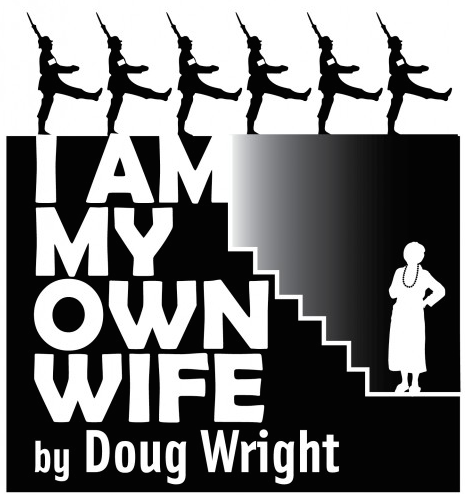
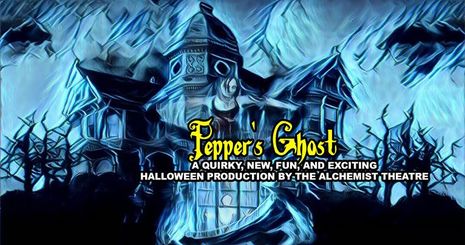
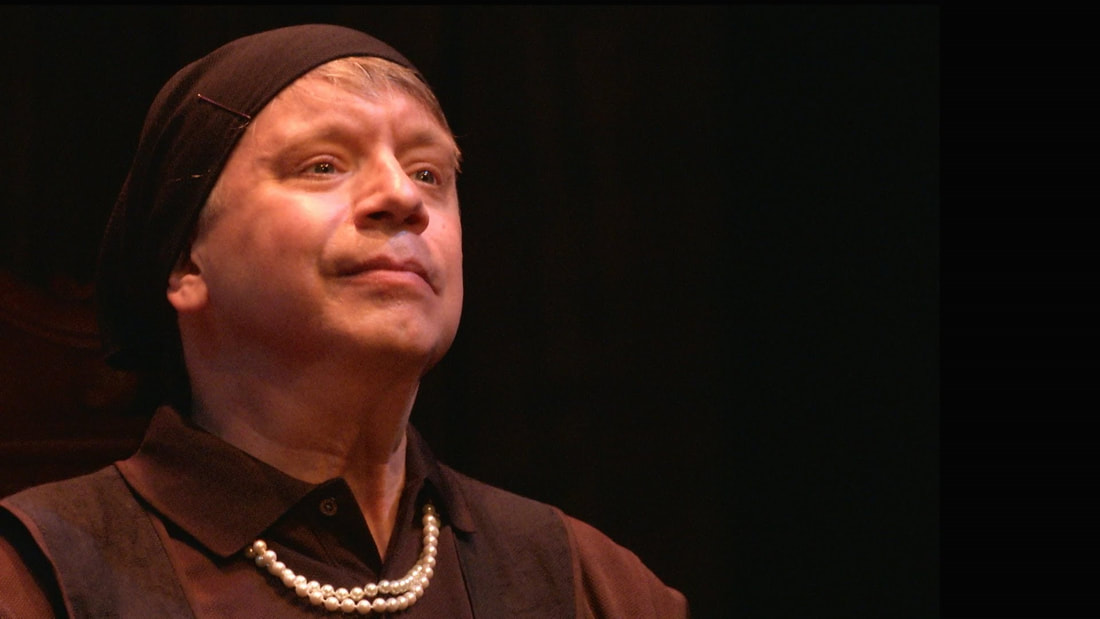
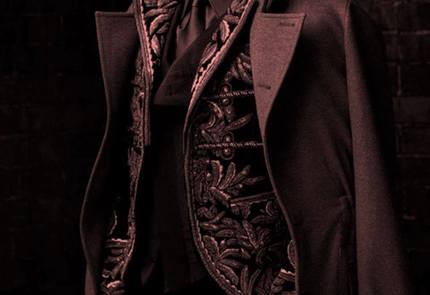
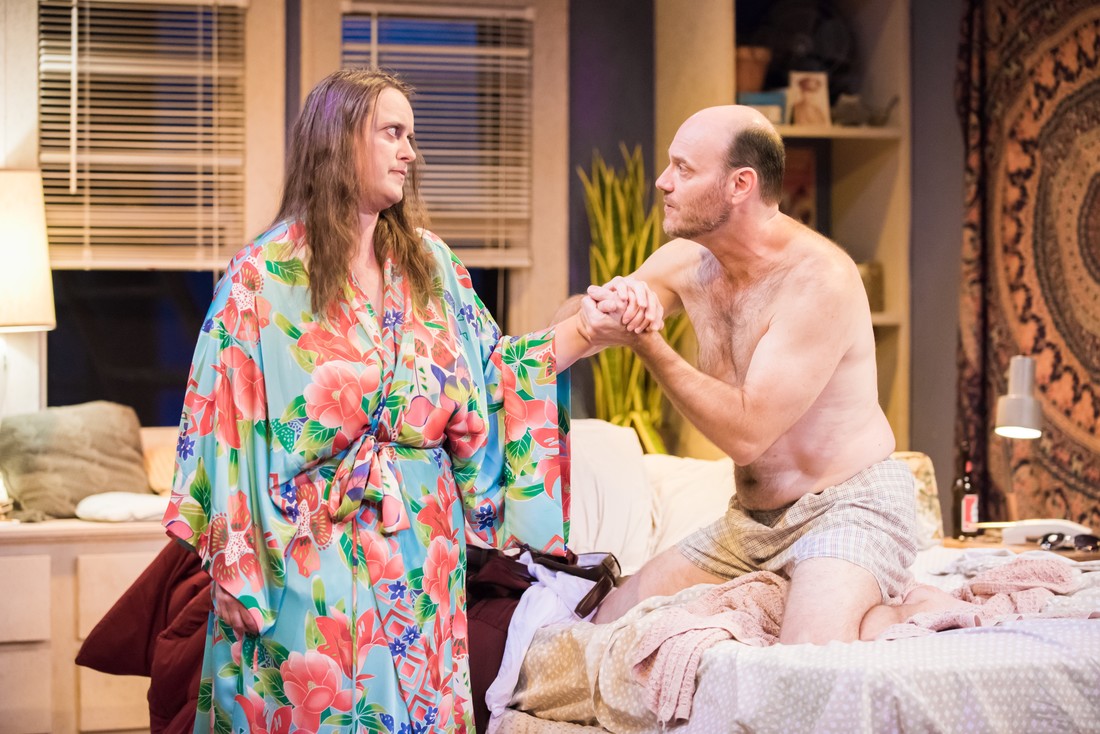
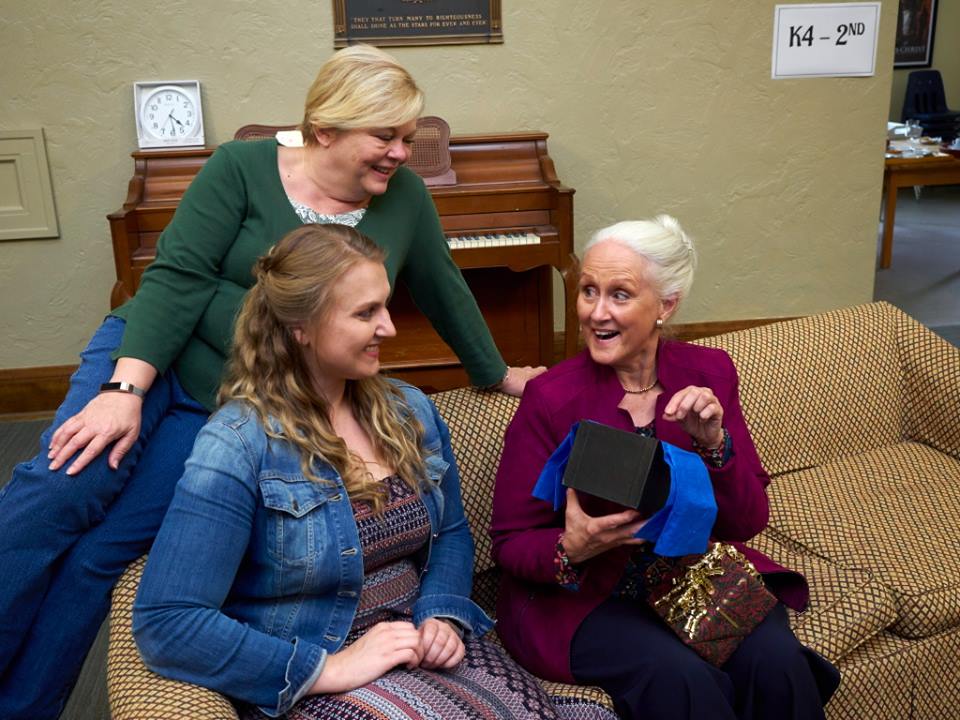
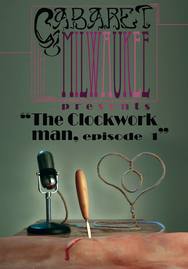
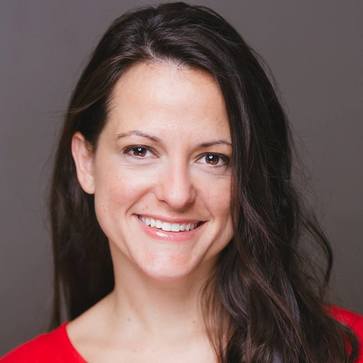
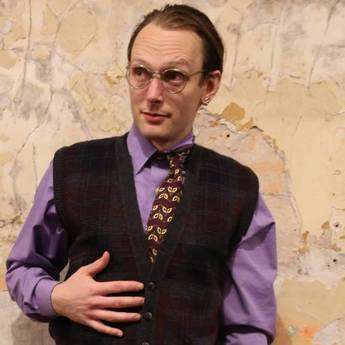
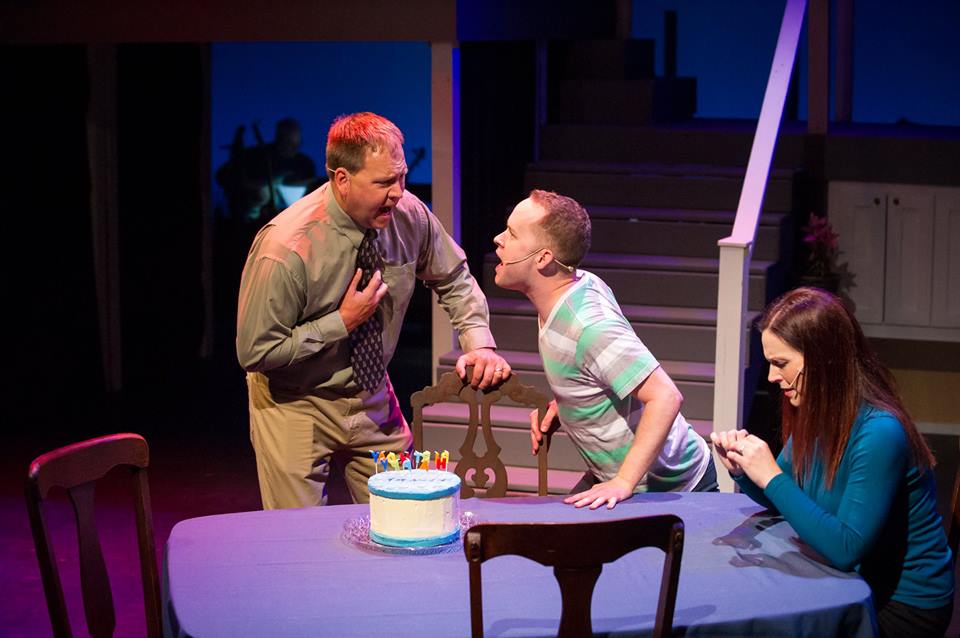
 RSS Feed
RSS Feed
